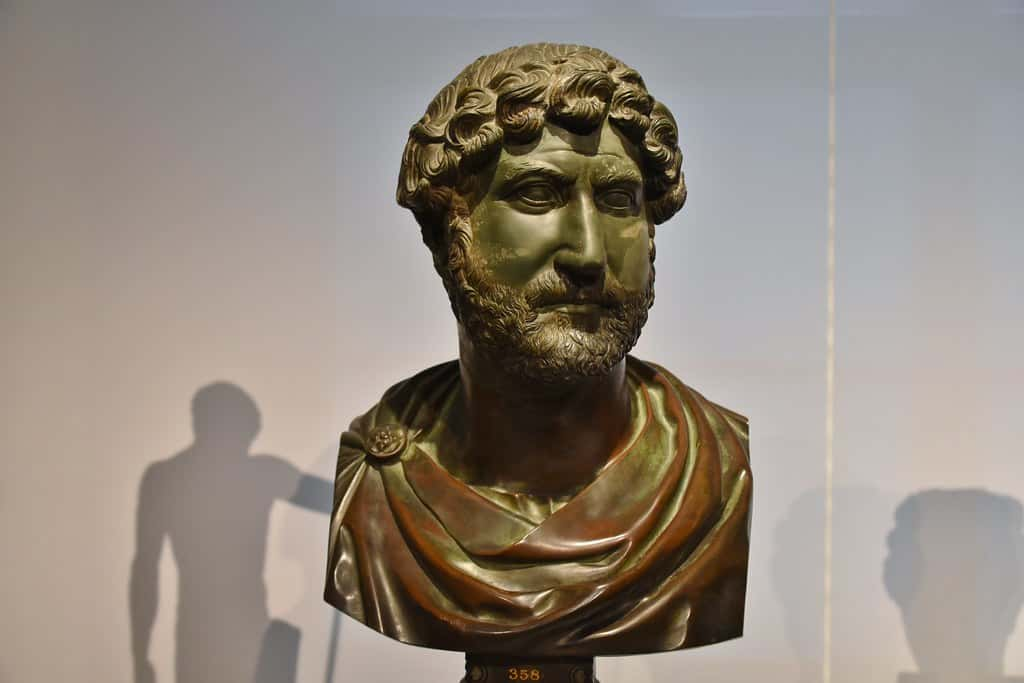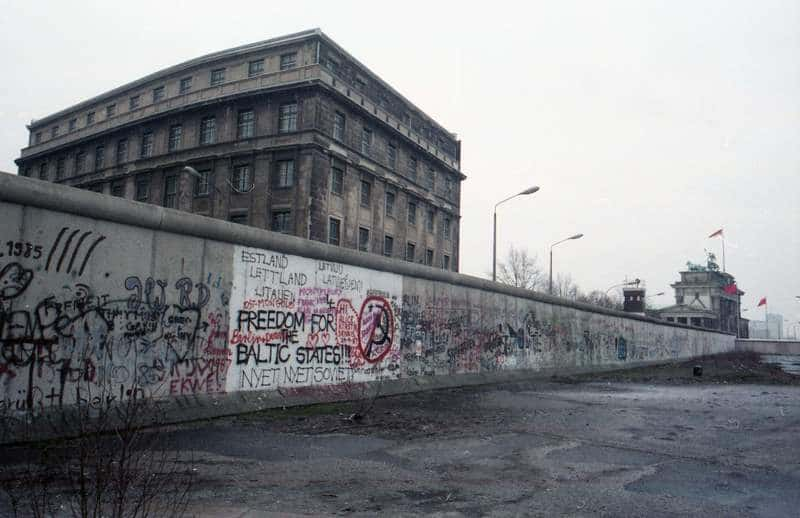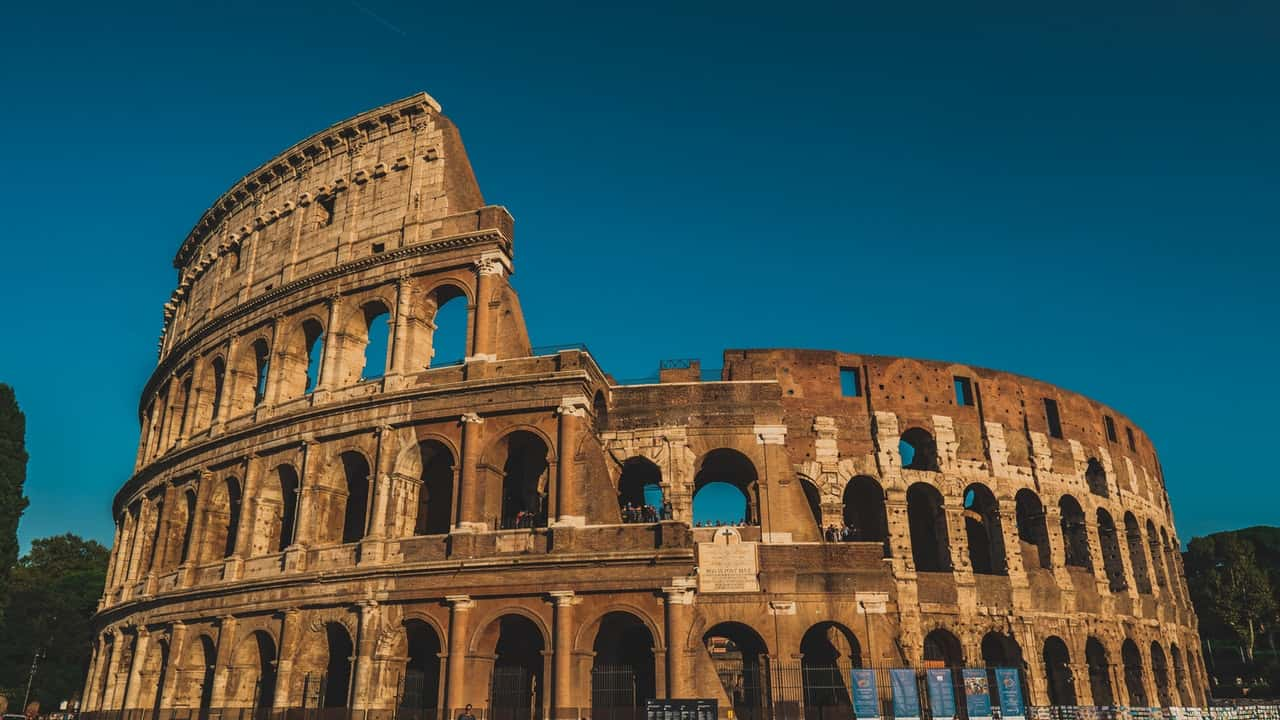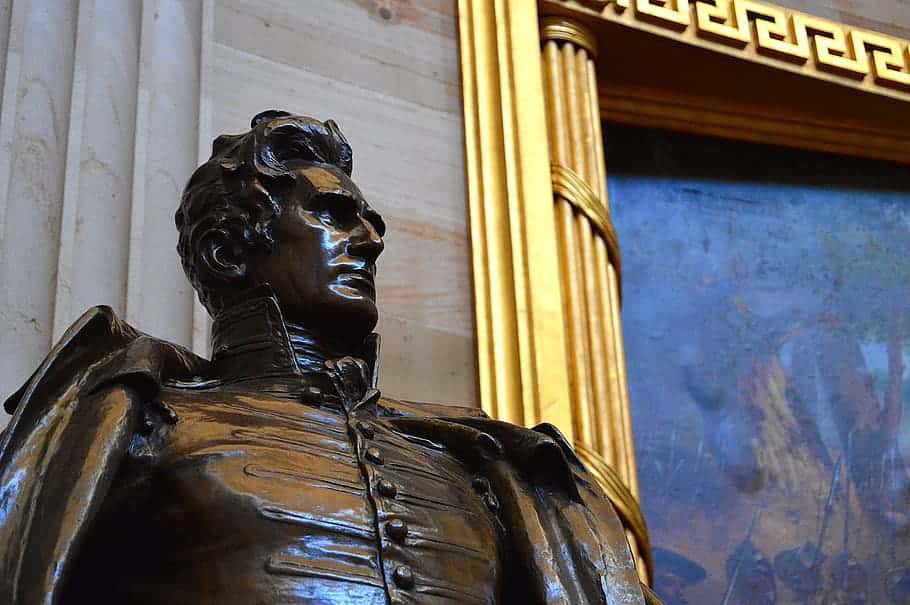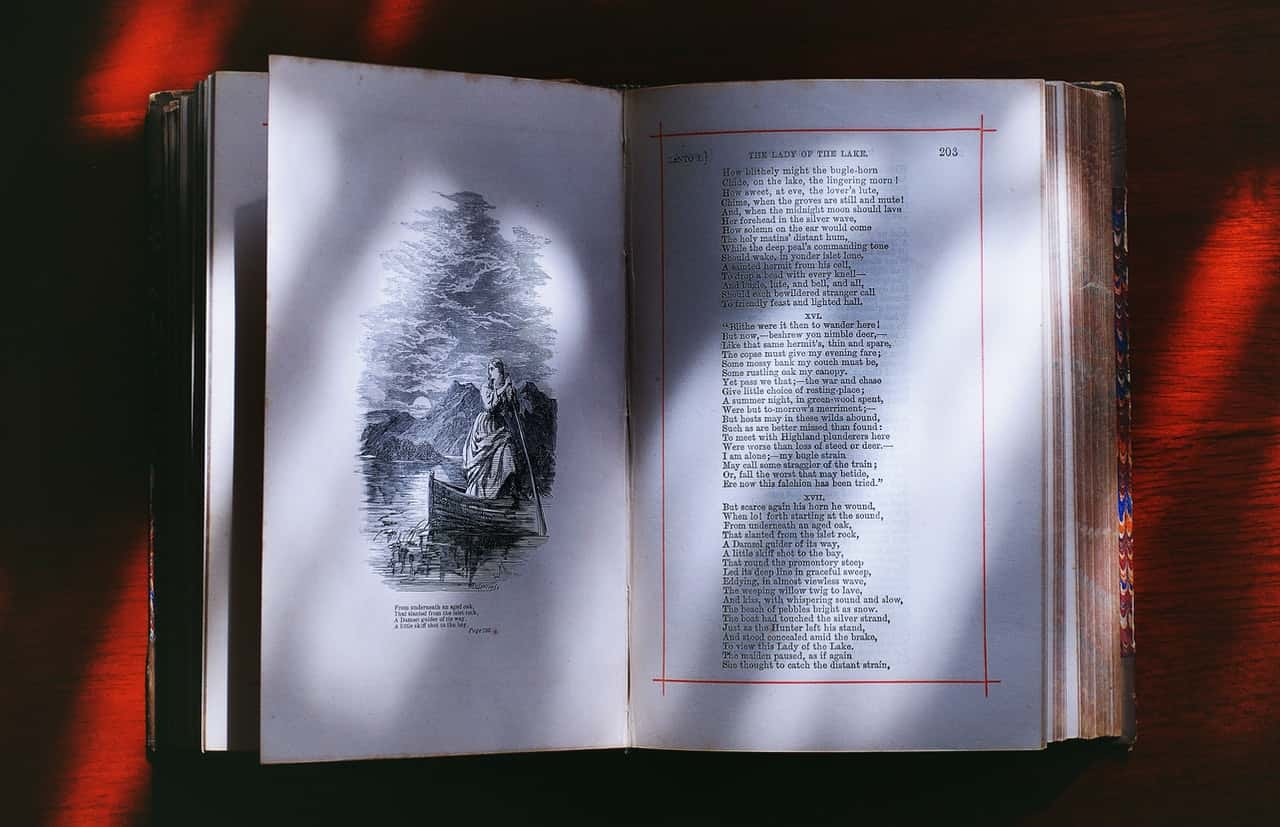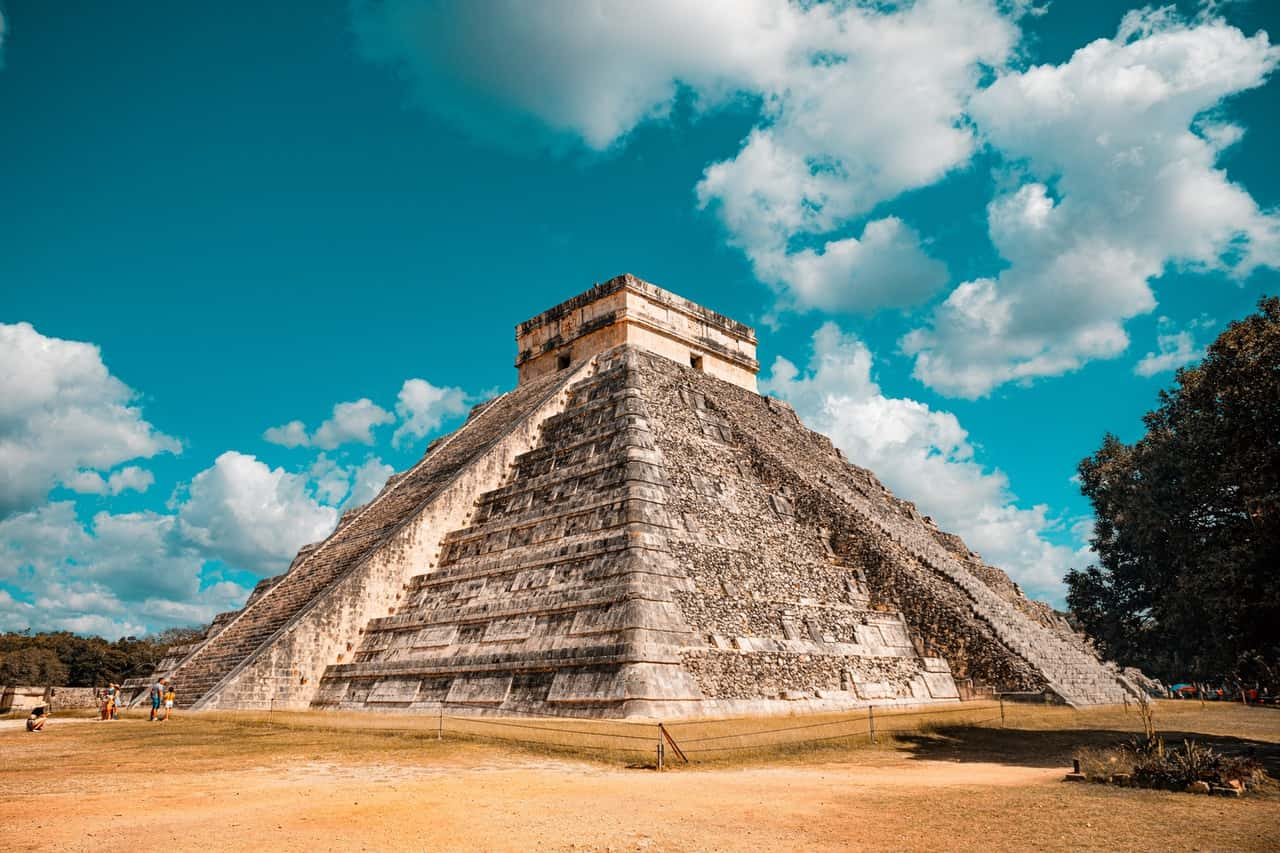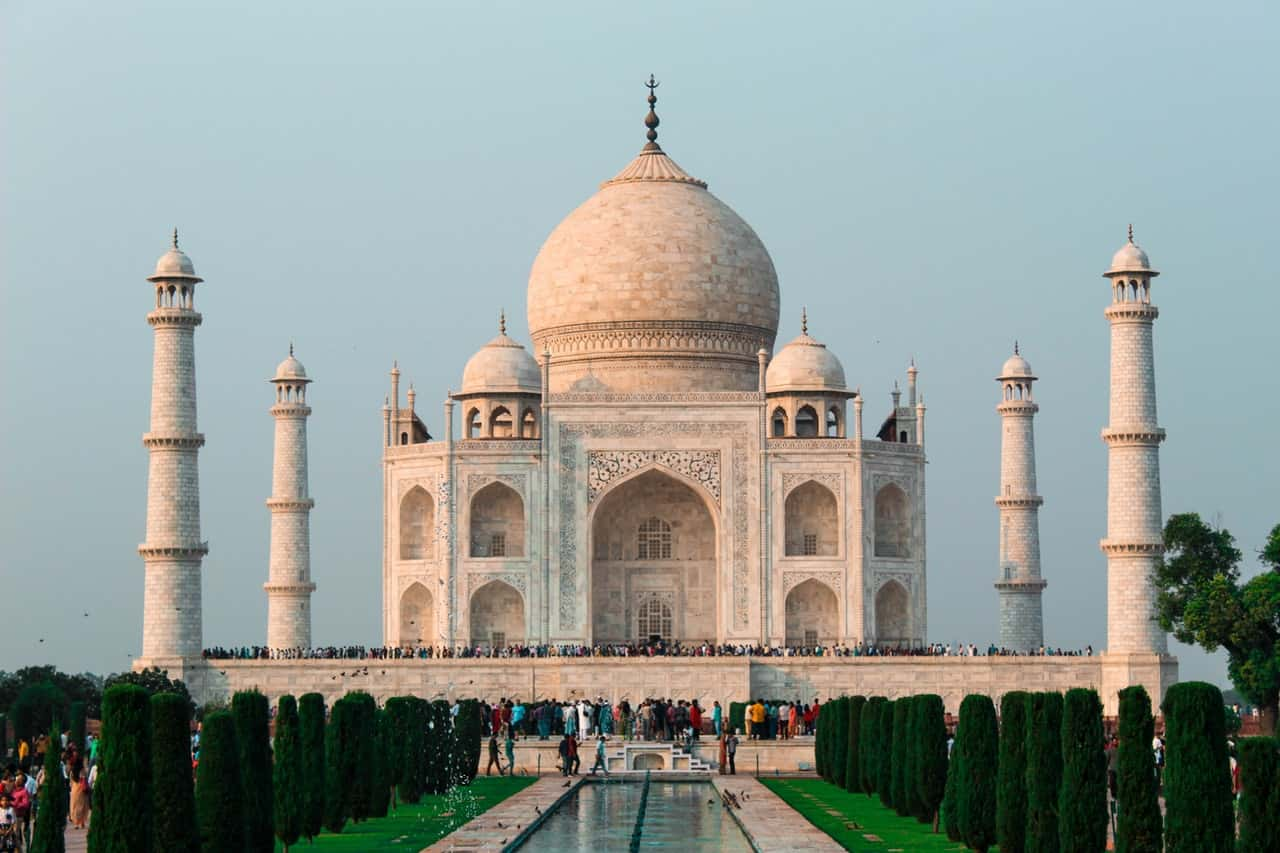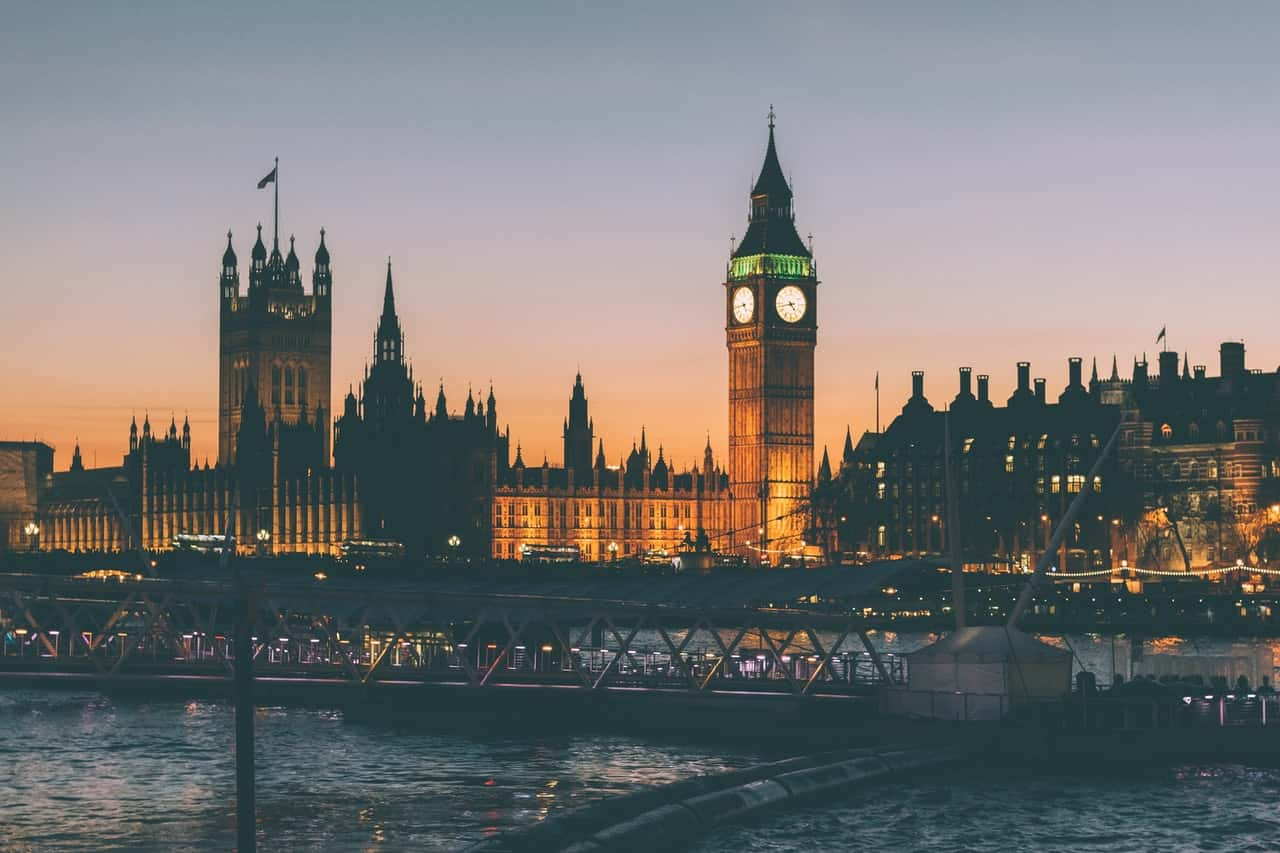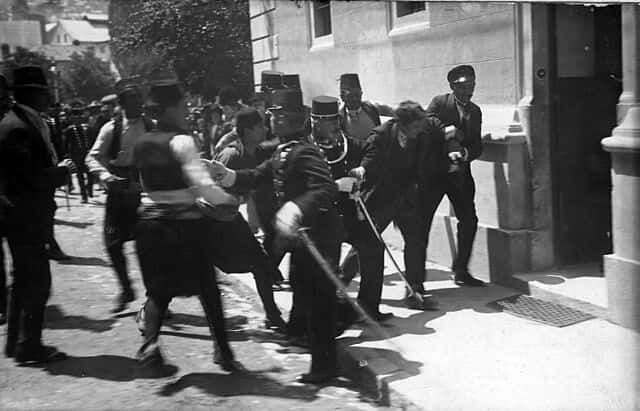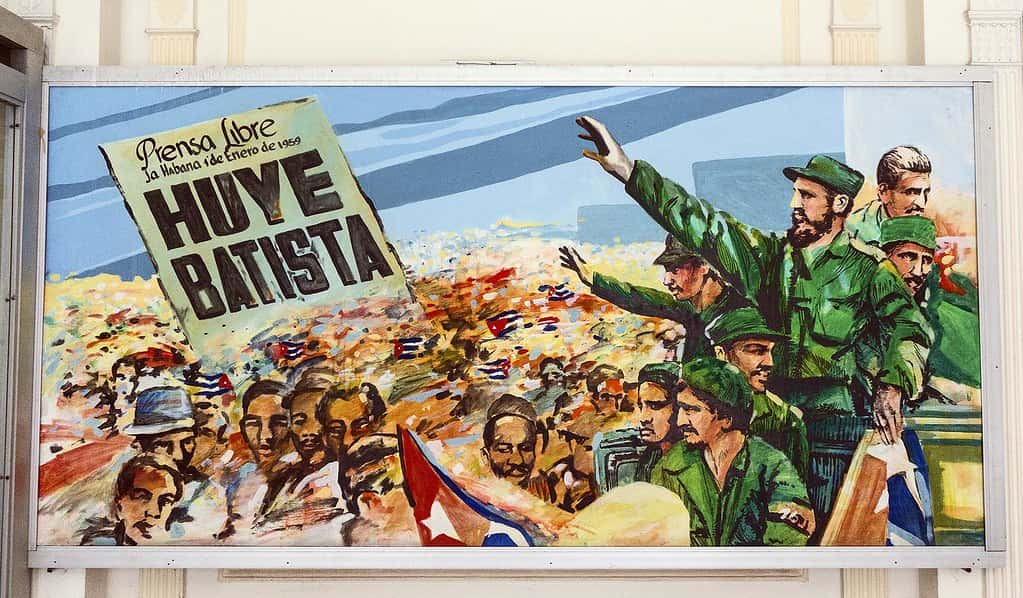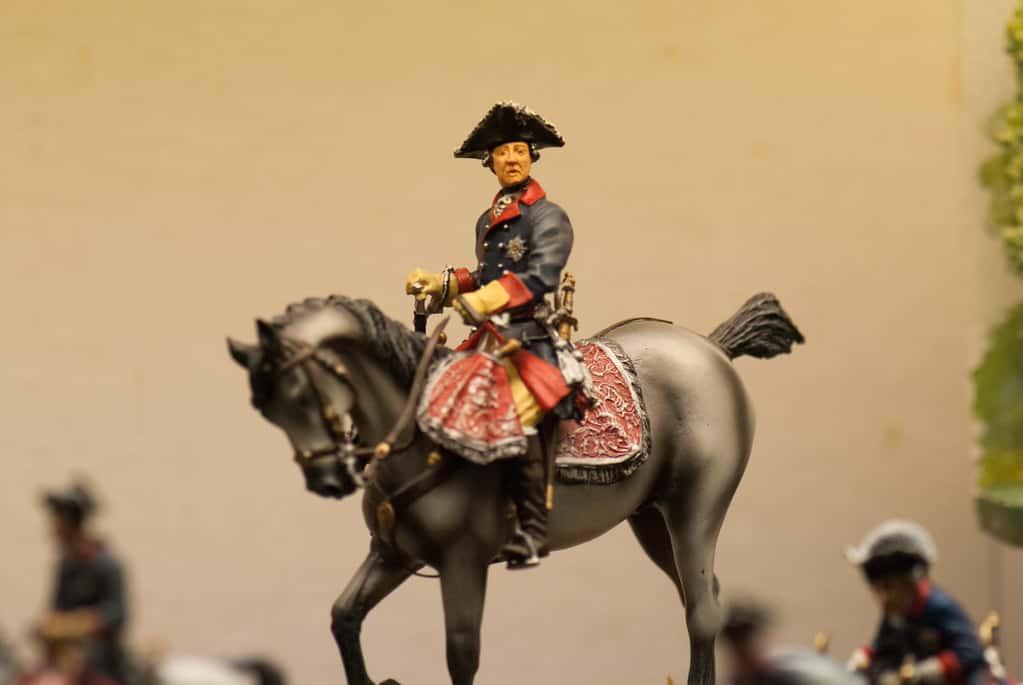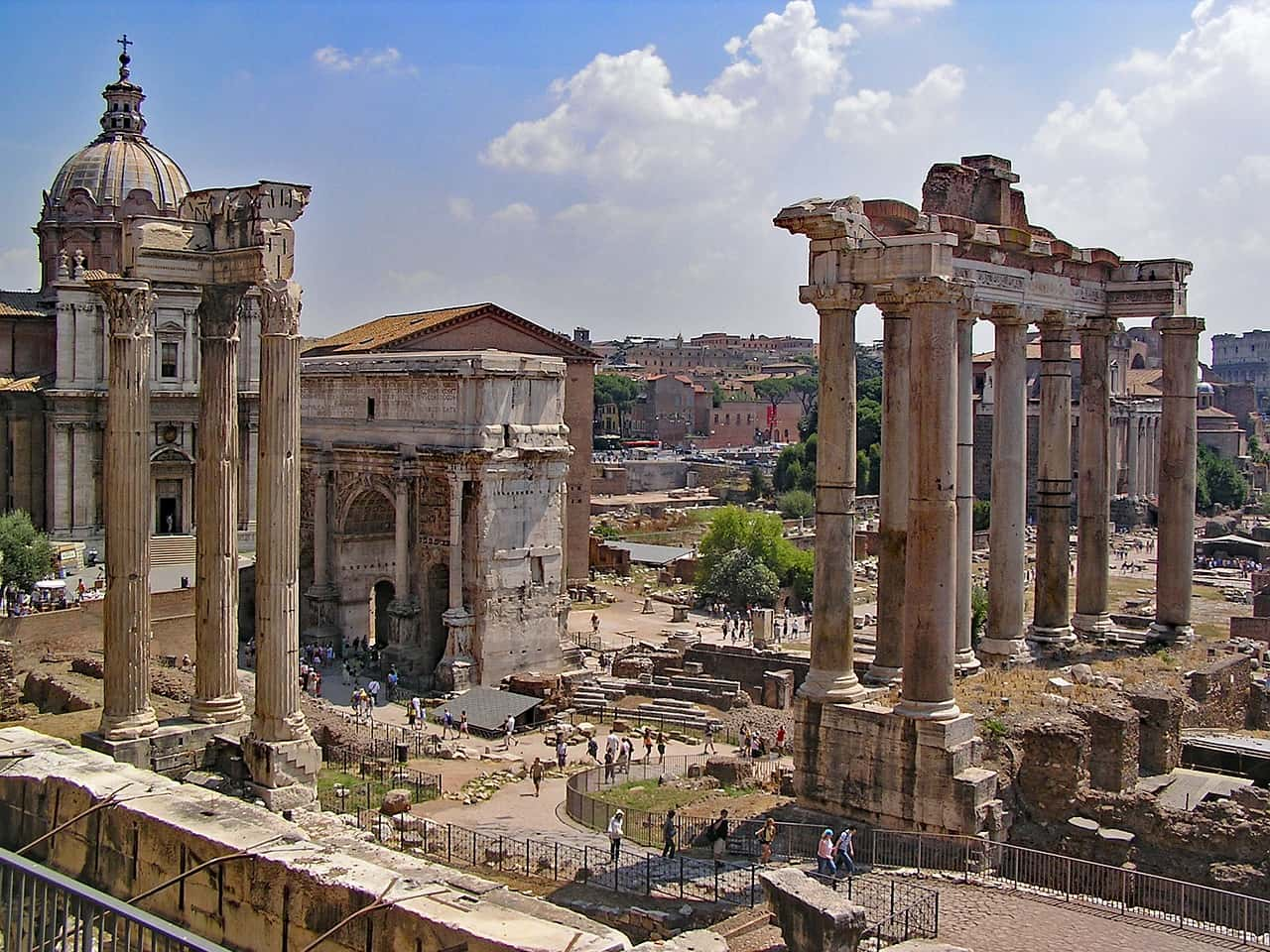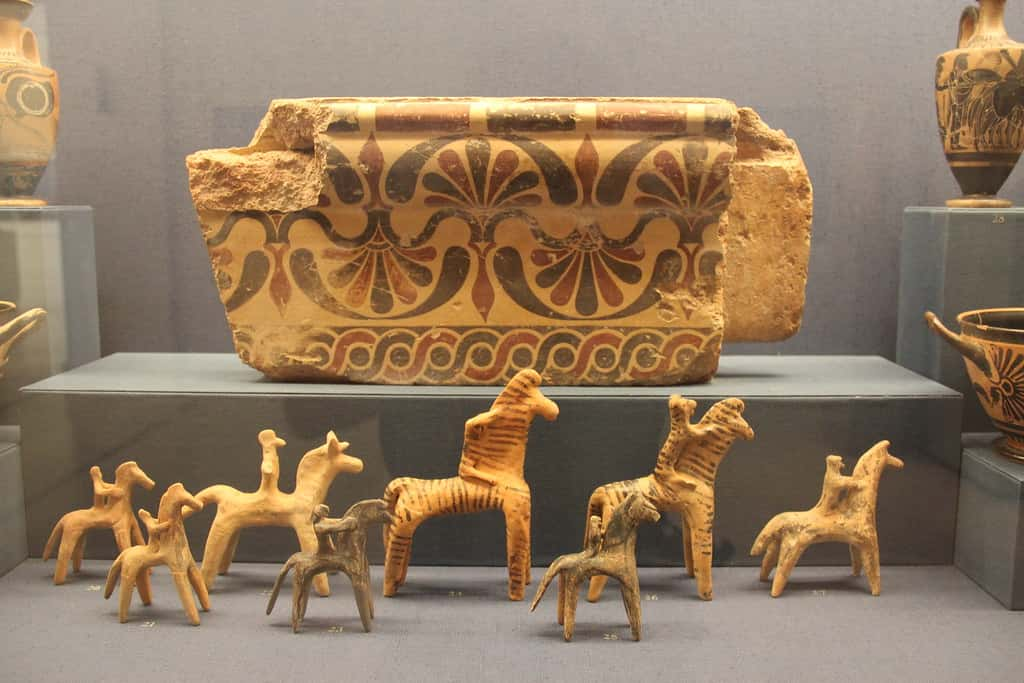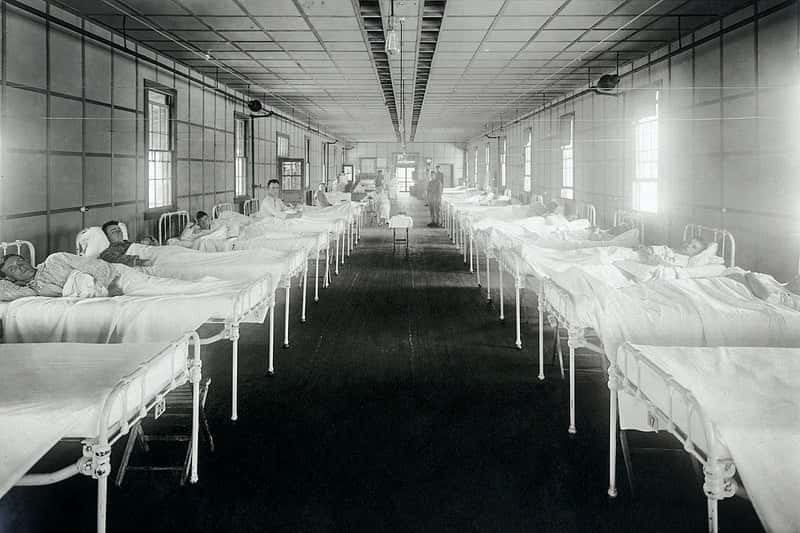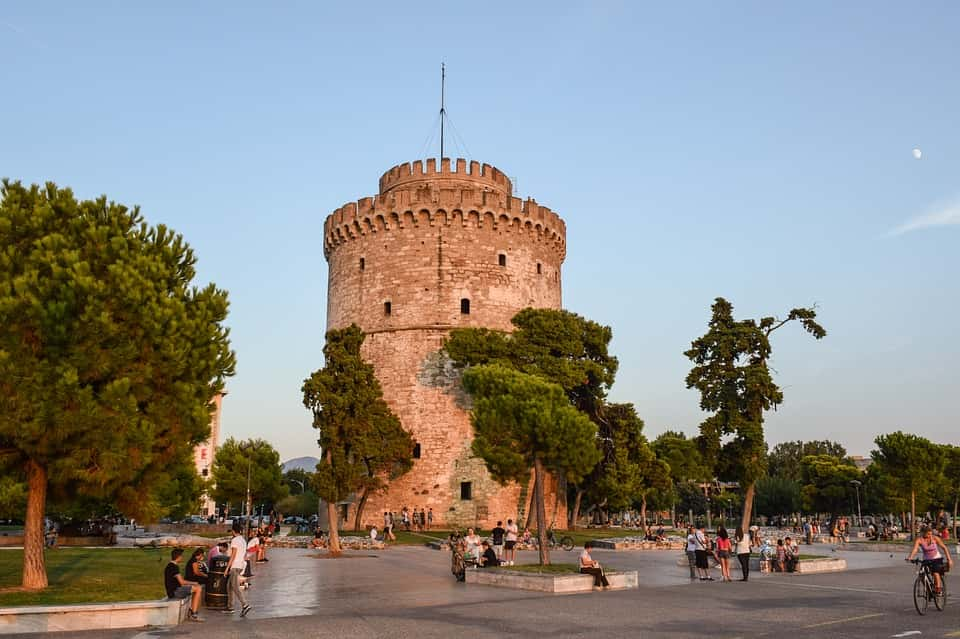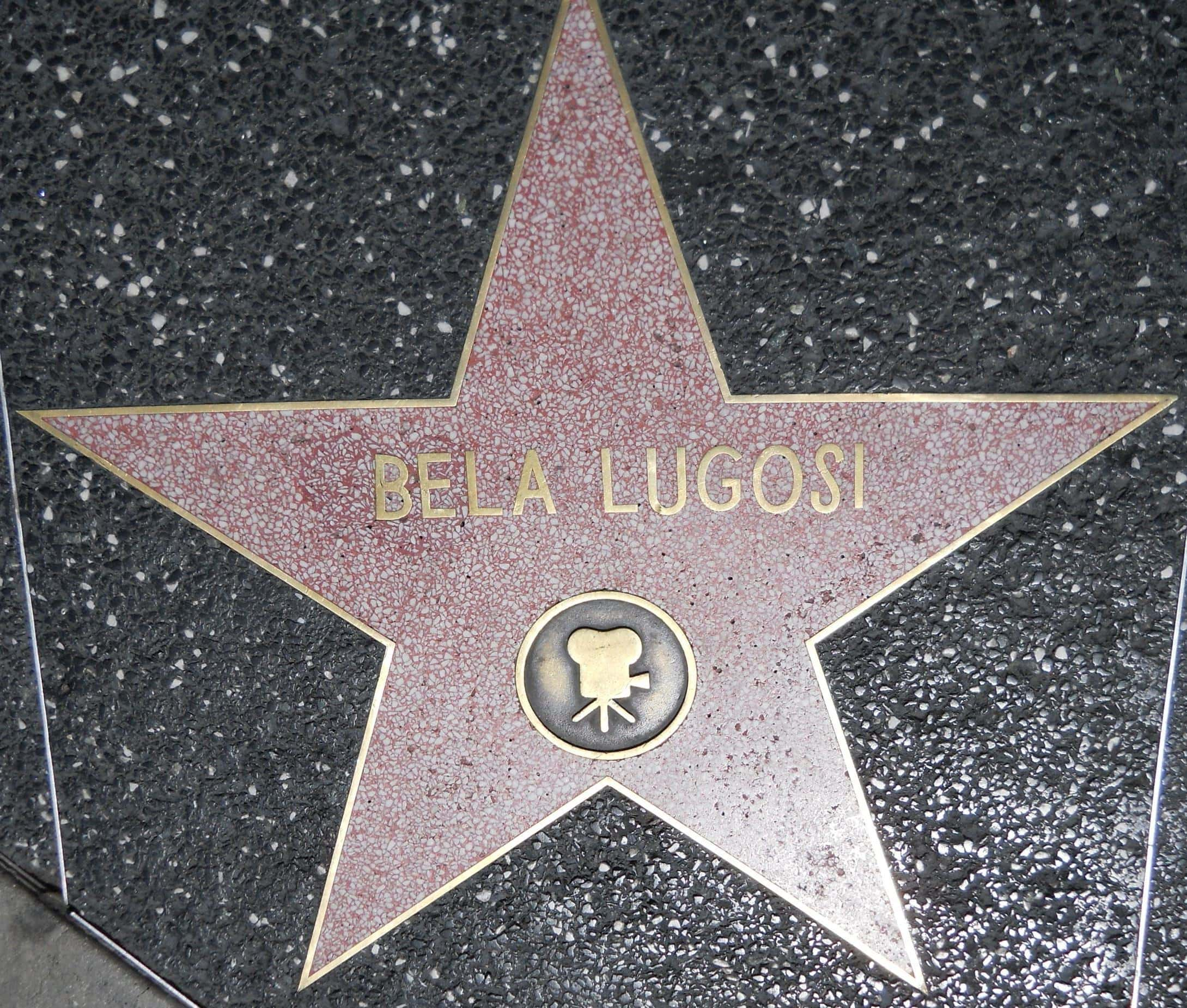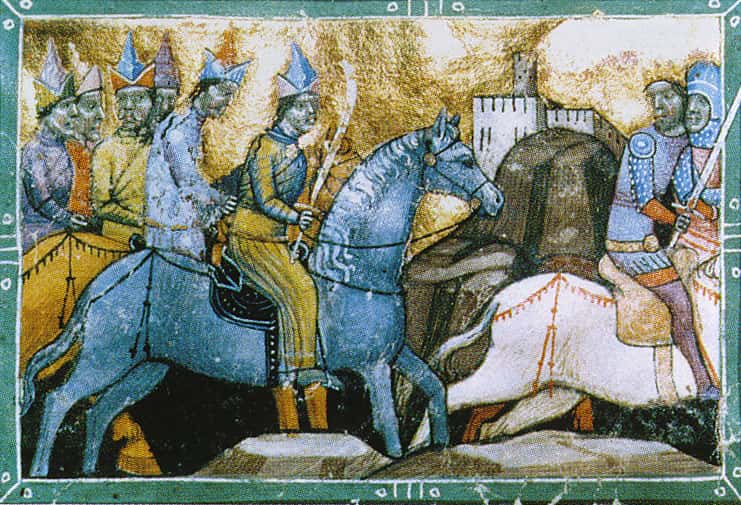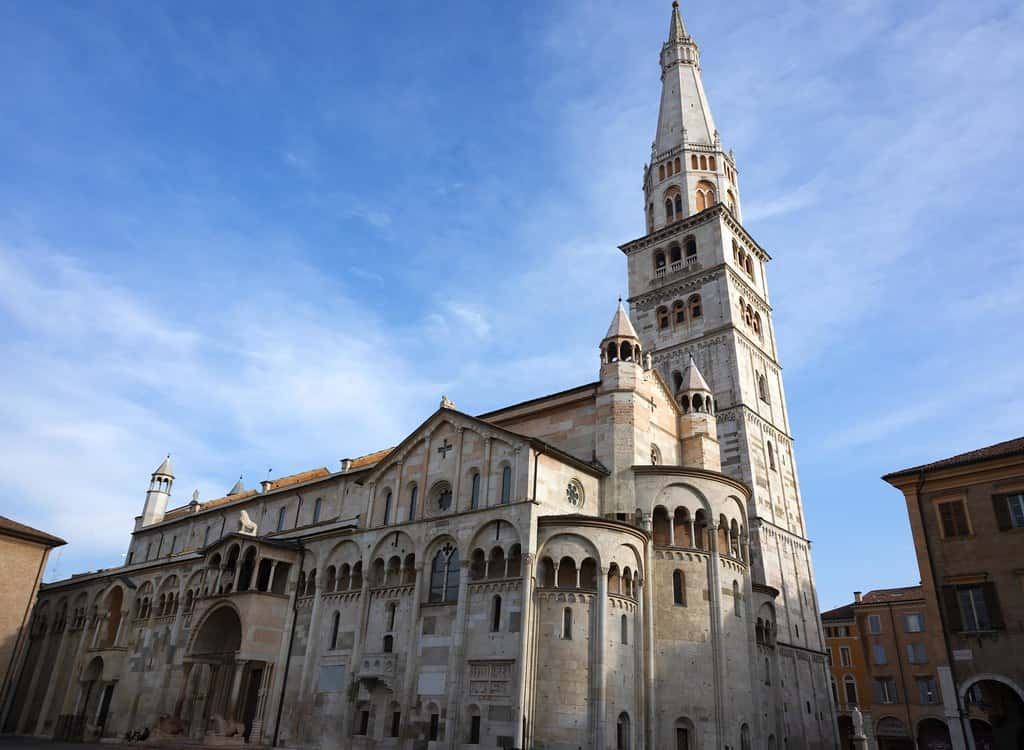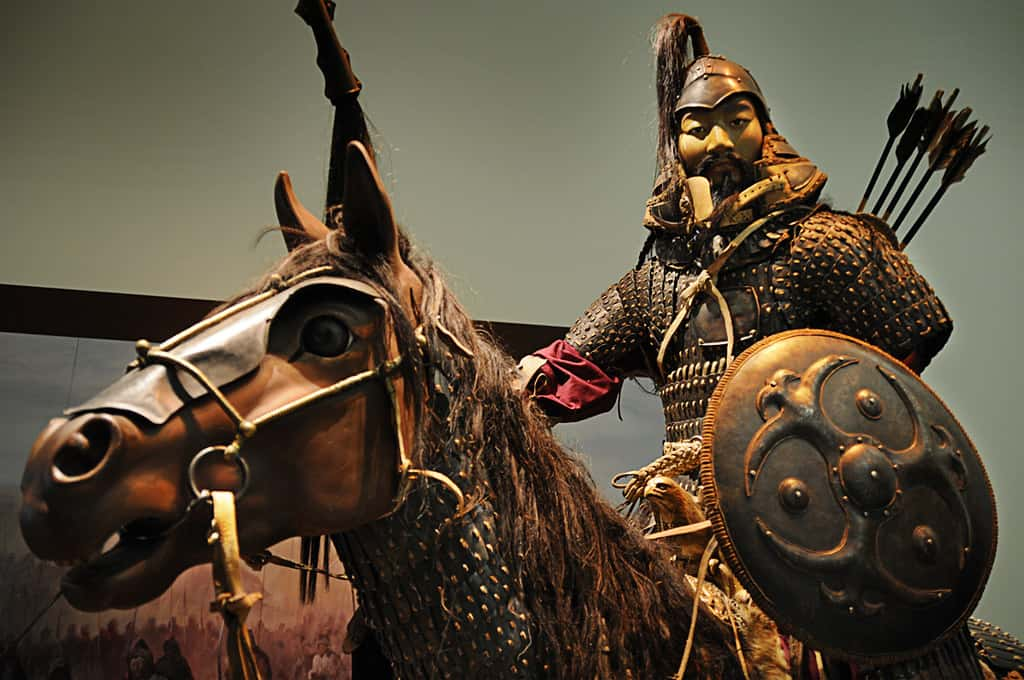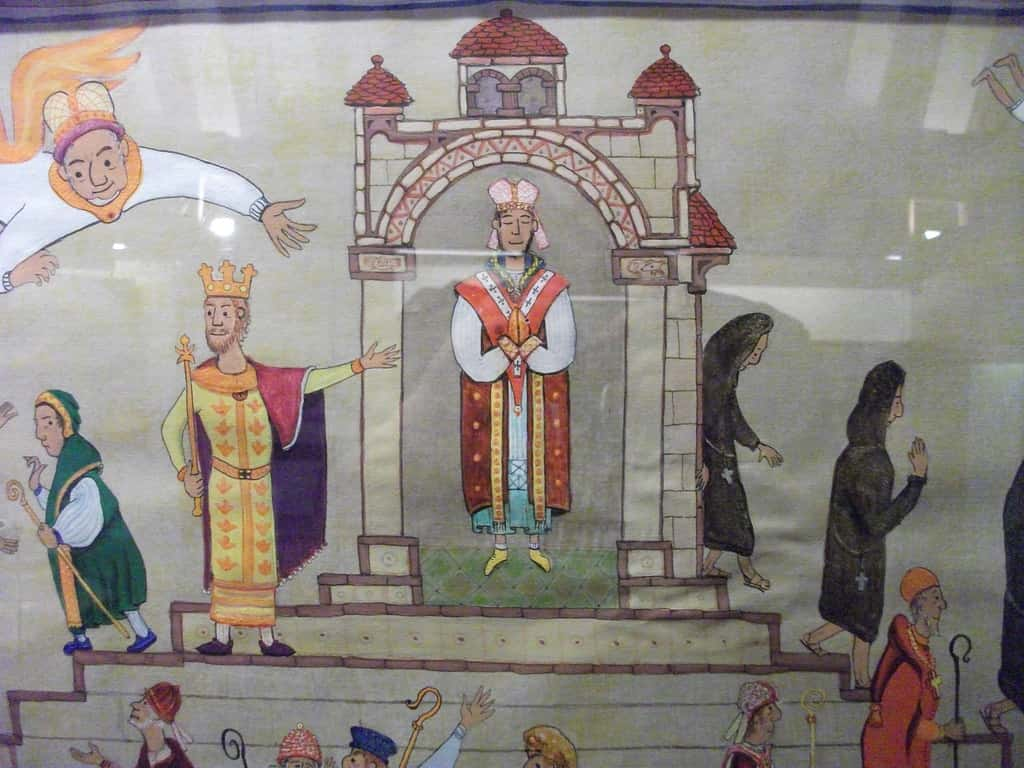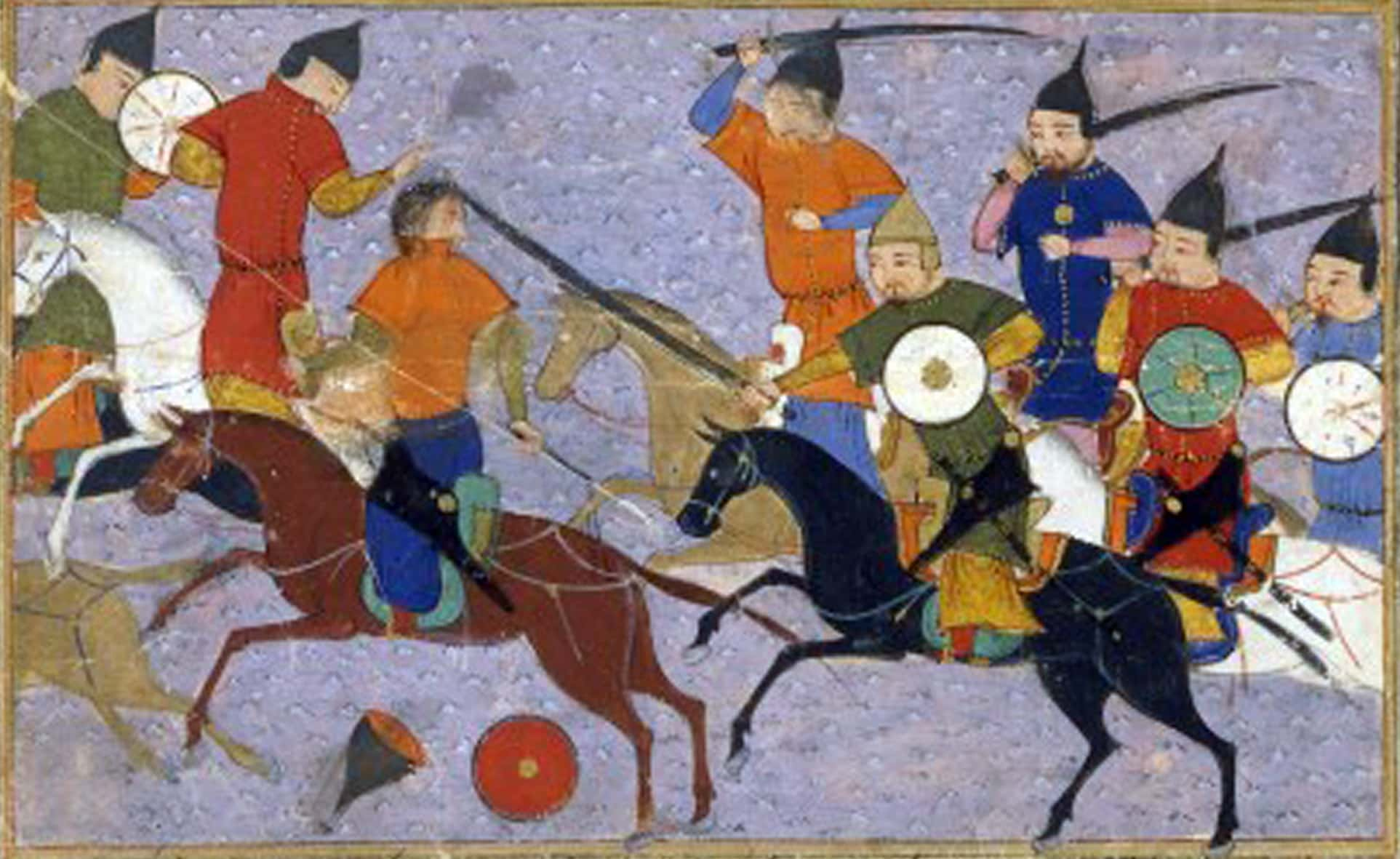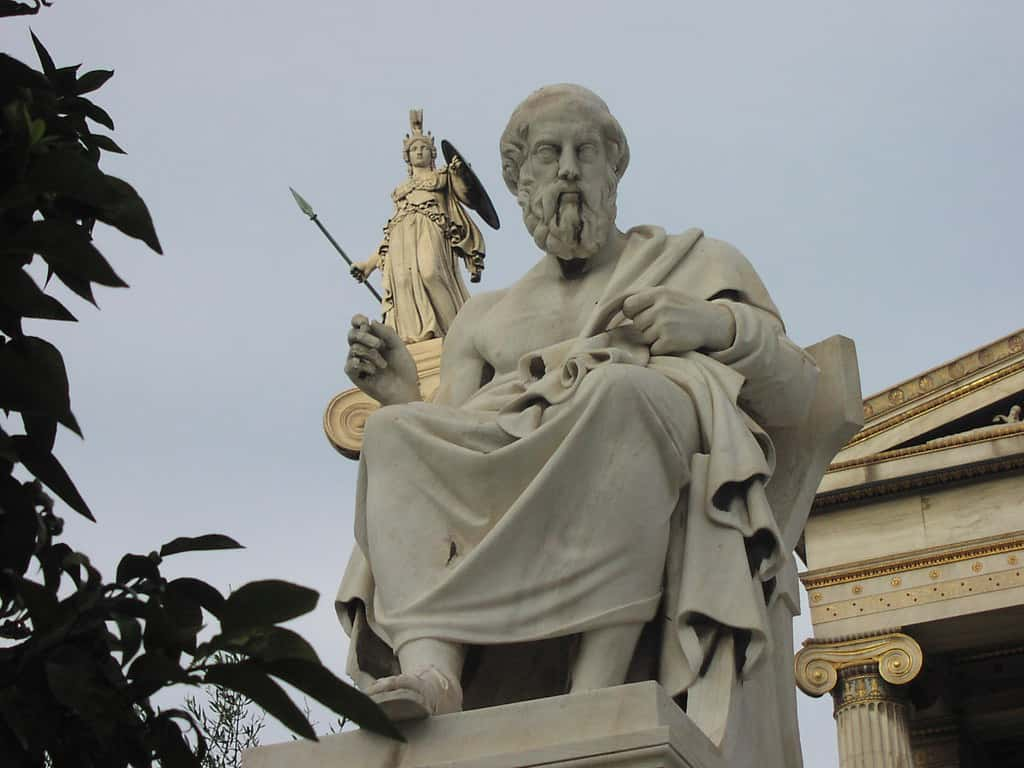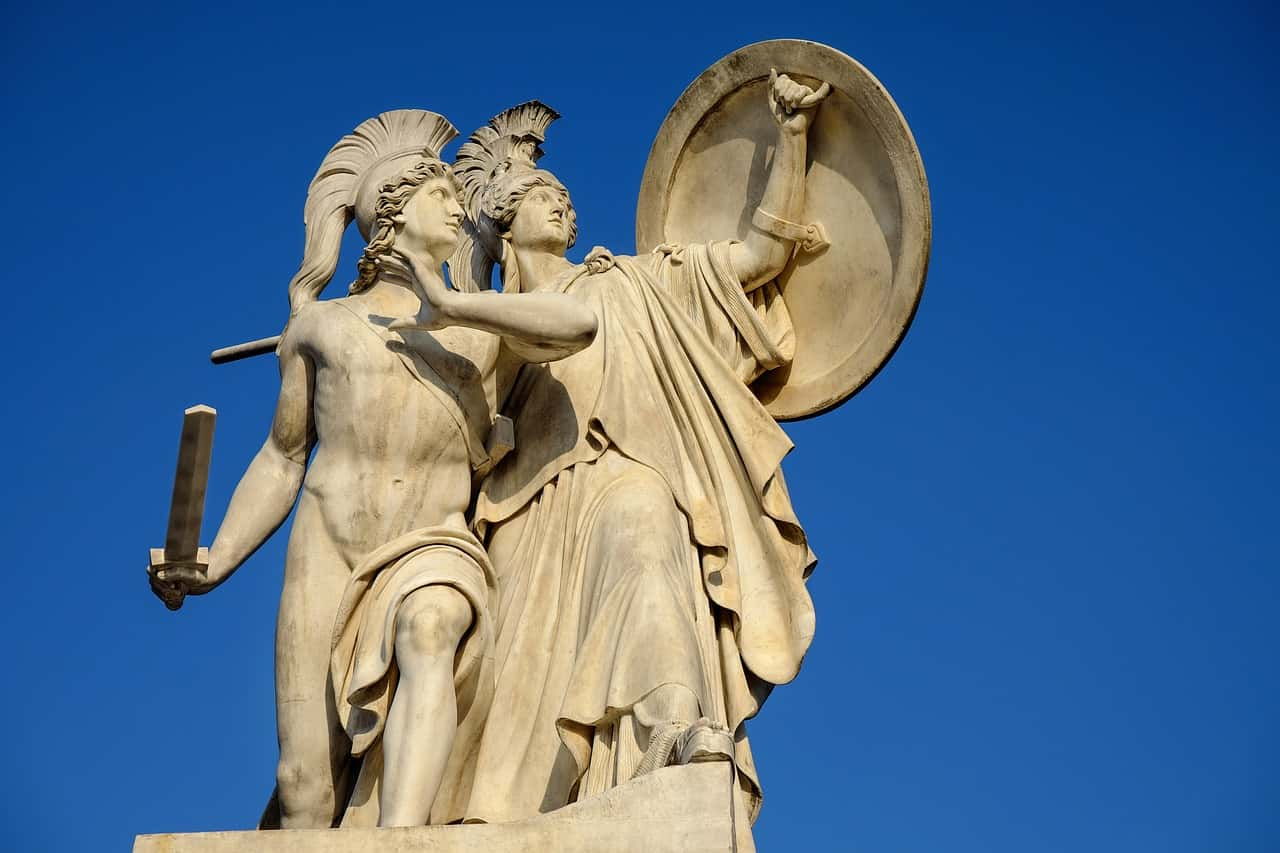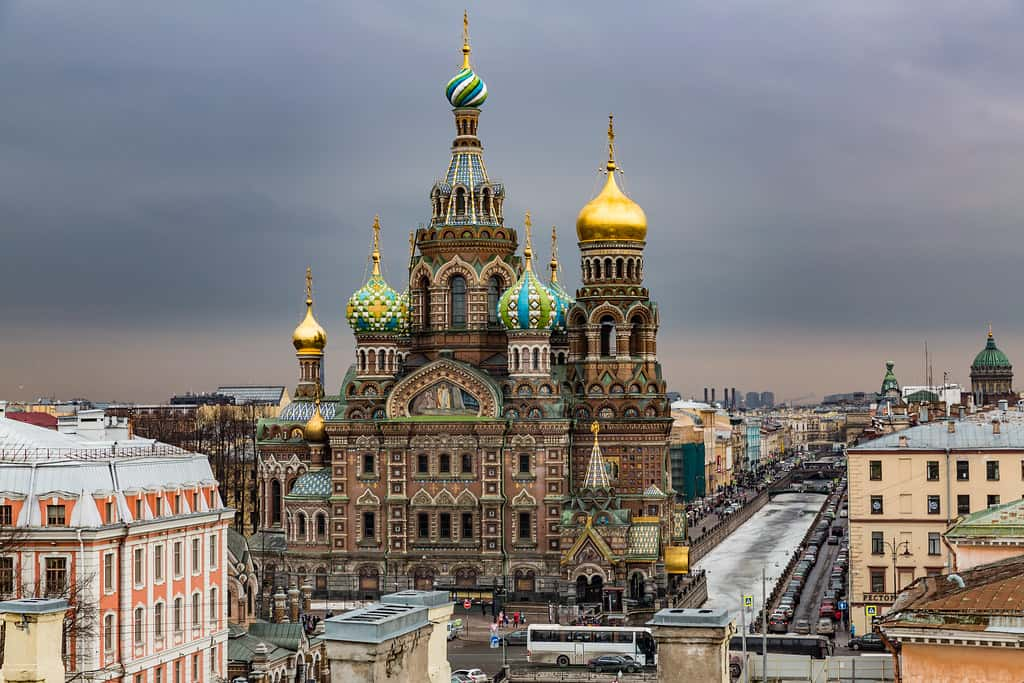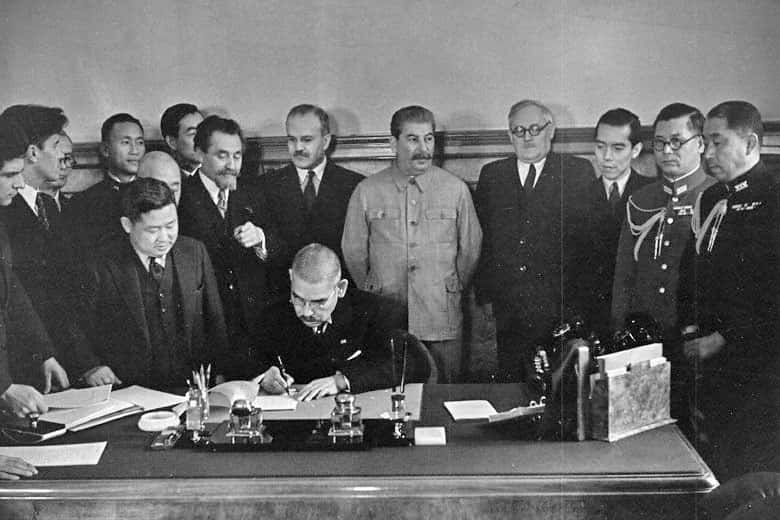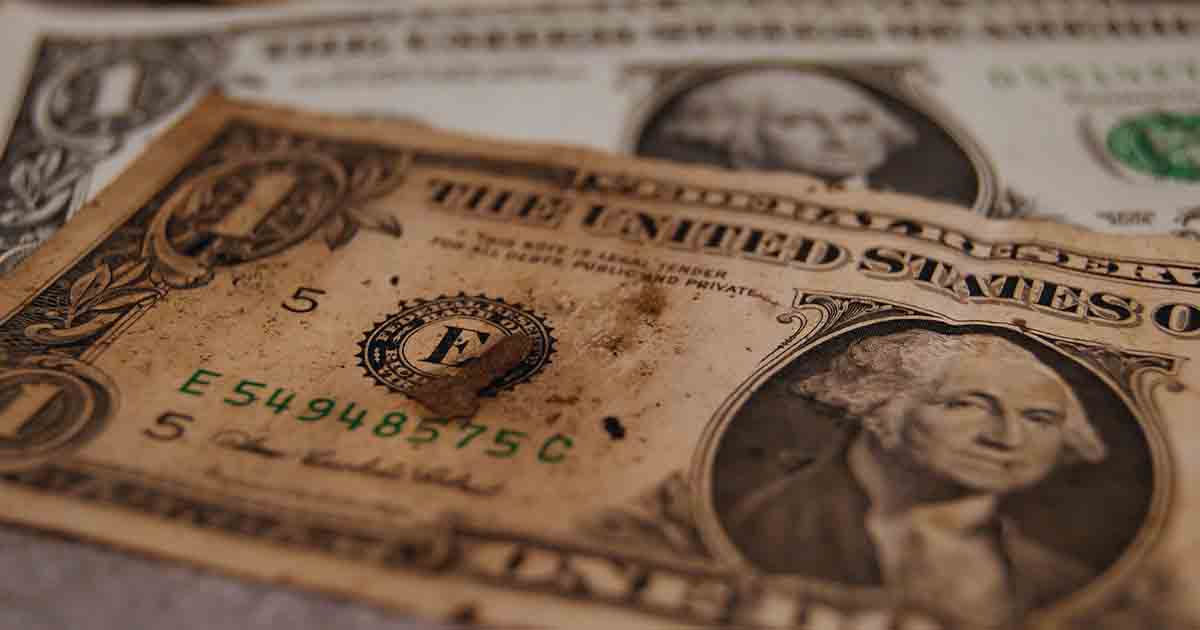Historians continue to look back in history not only so we can learn from people's past mistakes, but also because it's just so dang interesting. The following historians shared the strangest chain of events they've ever studied, and their stories will definitely make you appreciate history so much more.
#1 It's Raining Cats
We learned about this is school. In the 1950s, Borneo was suffering from an outbreak of malaria. With the help of the World Health Organization, they sprayed DDT all over the island to end the mosquitos. But the DDT also ended the islands wasps which helped control the population of thatch eating caterpillars. People’s homes were made of thatch, so without those caterpillars, their roofs began to collapse. Many other small insects started to get affected by the DDT, and they were eaten by geckos. The geckos developed a tolerance to the DDT but the cats who ate the geckos didn’t, and the cat population started to die off. This led to the island's rat population increase. And that’s the story of how an island with a malaria problem led to cats being airdropped into Borneo.
#2 Antinous The God
The deification of Antinoüs is a strange story. He was Emperor Hadrian's boyfriend and super cute. When he died young, Hadrian declared him a god. The weird thing is that this caught on and the cult of Antinoüs continued long after Hadrian died, right up until the Roman Empire became officially Christian and shut down that pagan stuff. There were all these people worshiping Antinoüs and building temples to him for two and a half centuries ... fully aware that he was a god just because Hadrian said so.
#3 The Influence Of Horses
Horses evolved in North America and were spread during pre-historical times into Asia. Then later, they went extinct in North America. If things had been only slightly different, horses could have been native only to the Americas, or just completely extinct by pre-history. Not having horses would have made a huge difference to Asian and European history: no Mongol invasions, no European knights.
#4 Cobra Chaos
When the British government wanted to get rid of the cobras in India, and they started paying a bounty for every dead cobra, which caused people to begin to breed cobras in order to end them and get the money. When the British realized this, they stopped the bounty, so the backyard cobra breeders just released them all.
#5 The Berlin Wall
Pretty much the fall of the Berlin Wall. The USSR was already crumbling by this point and so they agreed to allow the wall to be opened for a bit. Well, the guy in charge over in Berlin didn’t really get the point across to the public very well and as a result, everyone assumed that the wall was permanently coming down. This led to pretty much all of East Berlin flocking to the wall and demanding to be let through. The guards there knew there was no way to restrain all these people without a massacre occurring and the Russian government had no real way of easily fixing the huge mistake. And so the Berlin Wall fell, all because of a misinterpretation.
#6 An Unfortunate Ending
During the black plague, people thought the cats were spreading the disease. They then ended all the cats. The problem is that the cats ended rats, the real source of the plague. The plague now spread faster. It didn't end because of medical advancements, a return of the cat population, or them even realizing that rats were causing the problem. The major contributing factor was one of the most devastating fires in European history, which burned pretty much all of the lower-class areas to the ground, along with all of their rats and sick citizens. The plague ended because all the poor people died in a big fire.
#7 The Forces Of Pepsi
Probably how Pepsi briefly became the 6th largest military in the world. In 1959, President Eisenhower wanted to show the Soviet Union how great America was, so the government set up an "American National Exhibition" and sent Vice President Nixon there. Well, Nixon and Soviet leader Khrushchev got in an argument over communism vs. capitalism. As it got heated, the President of Pepsi stepped in and was like, "Bro Khrushchev, chill out, have a Pepsi."
Khruschev loved it because then the Soviet Union wanted to permanently bring Pepsi over to their country. The problem is that their money wasn't accepted throughout the world. Instead, like true Russians, the Soviet Union traded vodka for Pepsi. This was all good until the late 1980s when their contract was going to expire and vodka wouldn't cut it for payment. So instead they traded submarines and warships for 3 billion dollars worth of Pepsi. Sadly, instead of terrorizing the seas and shooting harpoons at their enemies, Pepsi decided to sell the fleet to a Swedish scrap metal company.
#8 The Miranda Rights
The Miranda Supreme Court decision is one of the best. His case makes it so that when you are arrested, the police have to tell you your rights and it became a staple of American TV. What most people do not know is that Ernesto Miranda, the defendant in the case, was a bad guy and about 20 years later, he was playing poker illegally in a basement of a bar. He got was cheating and when the people he was playing with caught on, they ended him. The first thing the police did when they arrested the guy the ended Ernesto Miranda was read him his Miranda rights.
#9 The Black Book
In 1918, British MP Noel Pemberton Billing caused a major scandal when he accused actress Maud Allan, and Margot Asquith, wife of the previous Prime Minister, of being at the center of a homosexual ring sabotaging the war effort. Evidence included Allan having performed in a play by Oscar Wilde, and Asquith having attended the performance.
He presented his case in an article where he claimed the exiled prince of Albania had a black book, listing all the blackmailed homosexuals in Britain. Maud Allan (who was in fact homosexual; Asquith was not) sued for libel but lost. During the trial, one witness claimed to have seen the Albanian prince's black book and claimed that the judge’s name was in it.
#10 The War Of Buckets
The events that led and culminated in the War of the Bucket for sure. Essentially, one Italian state who followed the Holy Roman Emperor stole a bucket from another Italian state who followed the Pope. War broke out, and the papal state highly outnumbered the HRE state, but the HRE state still won. Then they stole another bucket. It was a trip for sure when I learned about this one.
#11 Not Guilty
President Andrew Jackson was walking out of the Capitol Building with his buddy Congressman Davey Crockett. A man approached them, drew a gun, but it misfired. The man drew a second gun, which also misfired. Andrew Jackson, fairly old at this point, lifted his cane and began beating the would-be assassin. Normally, people would react with “justice served,” but Jackson was beating him so badly that Davey Crockett had to pull Jackson off his would-be assassin, who was arrested shortly after. The would-be assassin stood trial, represented by lawyer Francis Scott Key, author of the Star-Spangled Banner, and was the first American to be found not guilty by reason of insanity.
#12 Oh, The Irony
Francis Scott Key had a son named Philip Barton Key. Philip was ended by Daniel Sickles. Daniel Sickles used the first temporary insanity plea in the United States and he was acquitted of all charges. Ironically, Francis Key defended Richard Lawrence and used the insanity plea, then Francis Key's son was ended by Daniel Sickles who used the first temporary insanity plea.
#13 Sacred Animals
The Persian leader Cambyses II using cats to defeat an Egyptian army is pretty strange. He had his soldiers paint the goddess Bastet, who was cat-like in appearance, on their shields and "ranged before his front line dogs, sheep, cats, ibises and whatever other animals the Egyptians hold dear." The Egyptians, seeing the shields and sacred animals refused to fight out of fear of injuring them. Because of their refusal to fight they were easily defeated and actually massacred to where their bones were still scattered across the sands years later.
#14 The Pilot
A pilot who had been shot down and captured in 1967 would be spending the election in a POW camp, while the US representative sabotaged the Paris Peace Accords on behalf of Nixon. As a result of Nixon and the negotiator's actions, the pilot would spend 5 more years in that POW camp, where he was tortured and the United States would spend enough money to have educated an entire generation from Kindergarten to Ph.D., achieving nothing.
When the pilot returned, he would marry the heiress to a beer distribution fortune, after his first marriage ended due to him cheating on his first wife. The connections and backing granted by the dynasty he was now married into, enabled a successful bid for a seat in the House of Representatives in 1982. He would go on to serve in both chambers of government, until dying from brain cancer in 2018. At his funeral, none other than Henry Kissinger, the 1968 National Security Advisor who poisoned the Paris Peace Accords and directly prolonged his suffering, eulogized former US Senator John McCain.
#15 Arab Spring
Arab Spring is recent history, but still history. Mohamed Bouazizi, a Tunisian street vendor, has his wares confiscated. Unable to combat the police, he goes to the local governor to ask for his wares back but is refused even a meeting. In response, Bouazizi sets himself on fire in public.
It's not the sole reason, but certainly, the catalyst for the Arab Spring, which includes the civil war in many countries, leaders being ousted and in cases like Gaddafi, executed. It sees the rise in ISIS, terrorist acts in the western world, and other conflicts that remain active to this day. All because the police wouldn't give Bouazizi his weighing scales back.
#16 All About Texas
The start of WWI is a good one. Assassination setting off a chain of events that eventually led to an entire continent becoming engulfed in war. Texas is another interesting one in light of today's political climate. It was a part of Mexico that a bunch of Americans immigrated to, mostly illegally, but by Mexican law, they were not allowed to own slaves. They got really mad and rebelled from Mexico so that they could keep owning slaves and then formed Texas which eventually became part of the US.
#17 Gin And Tonic
British officers in India in the 18th century were eating quinine powder to help treat malaria. Quinine is so bitter on its own so they started putting it in their club soda to make easier to down. They invented tonic water. Brought the water back to Europe and they started putting it in their gin. Hence, gin and tonic.
#18 The 18 Year War
I remember how King Henry I was returning to England. He allowed his only legitimate son, next in line for the crown, his half brother and sister, and a bunch of really important people to ferry back with the guy who offered to sail the king back while the king went back on his own. After the all get tipsy, the boat crashes and only some random survived. This caused a civil war between England and Normandy for 18 years (1135-1153). According to Wikia, chroniclers described this as a period in which "Christ and his saints were asleep."
#19 Dang Hippies
If Gavrilo Princep never stopped for a snack at that cafe, he never would have shot Franz Ferdinand. That would have never started WWI with the particular political alliances of the moment. Russia wouldn't have been ground into dust by Germany economically while Germany lost the war. Communism never would have taken hold in Russia, while Nazism wouldn't even exist. WWII and the Cold War would have never happened. No Cold War means no American involvement in Vietnam...which led to the greatest catastrophe of the 20th century. Hippies. Disgusting, dirty hippies.
#20 The Lead-Up
The (original) Cuban revolution comes to mind. The first Cuban Rebellion was due to the descendants of Spanish born colonists rebelling against Spain. That revolution failed and many of them were stripped of their properties which were seized by the victors. Fast forward 10-15 years and another rebellion occurred, but this time it included freed slaves. The Americans came in at the end of the campaign and the revolution succeeded. The next 50 years saw American economic domination which led to a series of corrupt and somewhat ineffective governments which led to the Castro revolution.
#21 King Of Prussia
In the 17th century, most of Europe was on the verge of famine, but potatoes were in plentiful supply. The general population thought of the vegetables as disgusting so just didn't eat them, amazingly. Frederick the Great, the king in Prussia, grew fields of potatoes and stationed guards to protect them, saying no one is allowed to eat these. Soon enough, people were stealing potatoes, and then everyone wanted them.
#22 The Rise Of Islam
I started with an old man Muhammad who claimed to have got a message from God. He starts preaching and gets thrown out of the city for heresy. He moves to another where people are more accepting. However, he gets stuck in there for years. Eventually, after a series of wars and battles, Muhammad conquers and enslaves most of the tribes in Arabia, creating the first united Arabic state.
While this was going on, in the north Byzantine and Persian empires were fighting a series of wars that lasted for decades. These wars totally devastated the landscape, leaving it depopulated and very poor. This situation allowed this Arabic state, a very obscure and negligible tribal confederation, to conquer the entirety of the middle east, completely absorbing the Persian empire, and conquering 70% of Byzantine empire, practically unopposed.
If these events had not transpired in such fashion, then Islam would most likely remain an obscure and minor religion focused primarily in Arabia. And the middle east would remain, in the majority, Christian and Zoroastrian. Now that would be an interesting alternate history to see.
#23 White Collars
The “White Collars from the Port” case in Peru, that is still ongoing. It has landed former presidents, current political power holders and many public servants to jail. Many congressmen and women are shaking, knowing they will be next, once their parliamentary immunity runs off. Thing is, one day, two idiot dealers decided to have a shootout in the streets of Callao, which is a port city, embedded inside Lima, the country’s capital city. The place is highly contested by dealers since the port facilities are the main exit point for large illicit substance shipments. Obviously, this being Peru, everything is corrupt. So a small, but brave and honest, group of police officers and district attorneys start investigating this shootout and casually obtain wiretap judge orders for the suspects of the organization.
#24 Surrender The Empire
Not a historian, but the story of the Romano-Gaulic emperor "Tetricus" is a fun one. The guy was made emperor of the Gaulic Empire which seceded from Rome during the crisis of the third century. The previous emperor was ended by a jealous soldier because his wife was having an affair with the emperor. Anyway, the emperor's mom decided Tetricus should become the new guy so she bribed the army to declare him as emperor. Tetricus was not present for the ceremony, and would later surrender the Gaulic empire to Aurelian emperor of the actual Roman empire.
#25 The Bronze Age Apocalypse
The Bronze Age Apocalypse. The fact that there is an agreed-upon "Apocalypse" or collapse that we've gone through as a human race I think is just wild. Civilizations fell like dominoes, one after another. If my memory serves me right, we're not entirely too sure what exactly happened, but the popular theory involves a series of crazy natural disasters followed by the mysterious "sea people" wrecking everybody except the Egyptians (who are still severely crippled after fighting them).
#26 For The Science
Edinburgh during the 1800s was the leading city in anatomical research. However, there were tons of restrictions on how to get a body for dissection. This led to an illegal market of bodies and grave robbing. But when those were cracked down. Burke and Hare started ending people in order to sell the bodies to an anatomy professor.
#27 Deadly Outbreak
During the early 20th century, there was an outbreak of Spanish flu in the Americas which caused large amounts of suffering and death among afflicted throughout the world. Eleven victims living in the town of Longyearbyen in the North Sea that died. However, The very cold temperature there created a layer of permafrost at burial depth which accidentally preserved remnants of the flu. This made it illegal to die there as turning up the ground would likely re-release the disease. However, scientists studying epidemics such as the Spanish flu use samples from the deceased in Longyearbyen.
#28 An Epic Comeback
The unmatched superpowers of the late classical world, Eastern Rome and Persia fight a titanic deathmatch where both capitals were in serious danger at different moments—Constantinople almost vanished under a double assault from Persians and steppe nomads (with trebuchets!) but rebounded into the most epic comeback in military history.
With the stolen True Cross back in Jerusalem, it seemed certain that the Roman Empire would dominate the known world. But both powers had battered each other senseless. Then came strange reports of Arab nomads launching their usual raids but not vanishing again into the desert haze as they always did. They seemed to be everywhere, they never retreated, there were no armies left to hold them back, and there were rumors of a prophet... within a few decades, Persia was gone and the armies of Islam were at the gates of Constantinople.
#29 Mob Mentality
The First Defenestration of Prague. An angry mob of Hussites stormed city hall and threw seven public officials out the window to their death. King Wenceslas IV of Bohemia died from the shock of hearing about the incident. Subsequent civil unrest started the Hussite wars that lasted the next seven years. Incidentally, the Third Defenestration of Prague (often falsely called the Second) led to the 30 years war.
#30 Under His Name
I don't know if this is for here but I always found it funny. The name "Dimitry" is very popular in the Slavic world. Top 5 popular. It honors a Saint, as most of the orthodox names do. This saint was a Greek who was a martyr and patron saint of Thessaloniki. When the Slavic tribes attacked the city many times over history, the locals fought under his banner. The Slavs never conquered Thessaloniki.
#31 Real Life Experience
The story or Bela Lugosi, who is most famous for playing Dracula in 1931. It baffles me that he was able to leave his family so young, become an actor, play Jesus Christ, fight in WWI (on the side of Hungary), get injured in battle, head home, be part of a political revolution, escape his country, go to New Orleans, become a Broadway actor, ALL BEFORE his “breakout role” of Count Dracula. The man had already been through more than most people could ever imagine before he played the character which made him famous, and not once in his interviews did he ever seem like a man who had been through even half as much. Honestly, we need a movie about Bela Lugosi.
#32 A Crazy Life
The life of Qutuz, one of the last survivors and princes of Khwarezm, whose identity was kept secret by a steward, was sold into slavery in Syria by the Mongols, became a Mamluk in Egypt, then freakishly a Sultan, then finally went on to defeat the Mongols in Ain Jalut, breaking their unstoppable drive and probably saving the Muslim states from them, then dying shortly after. It's like his whole life was planned for him to do just that.
#33 Sneak Attack
One of the first, if not the first examples of an IED (improvised exploding device) dates from 1562 when Lanfranco Fontana of Modena sent IEDs disguised as gifts to his enemies. He timed it so that messengers delivered them at the same hour on the same day to six different families in several different cities in Italy, including Florence, Parma, Modena, and Rome.
The poor people were expecting presents; instead, the IEDs went off when they were opened. The Duke of Modena was so pissed he commissioned a statue of Lanfranco Fontana with a noose around his neck and flames at his feet and put it outside the families' house where it was until the 18th century. The families involved including Lanfranco's had to sign a peace agreement for fifteen generations. Technically, it's still in effect.
#34 Wiped Out
Genghis Khan sent a group of emissaries to the Khwarezmid Empire seeking a trade agreement. In response, the Shah shaved the beards of two of the emissaries and ended the third. When Genghis Khan found out he attacked and destroyed the Khwarezmid Empire ending 1.7 million people or 25% of their population. They were wiped off of the map.
#35 It's On Rollo
I found it interesting when the Vikings raided France. Rollo made the faithful decision to betray his fellow Vikings and become the ruler of Normandy. One of his descendants, William the Conqueror, would later conquer England, forever changing England, thus forever changing Europe's history, therefore forever changing the world's history... forever... just because Rollo made a faithful decision. Imagine how much different our world would be if Rollo took an arrow while laying siege to Paris.
#36 The Planet Was Spared
Thomas Midgley, Jr. Working at GM, He was seeking a solution to the problems of engine knock. He invents tetraethyl lead, better known as the lead in gasoline. Later in life, seeking a safer refrigerant than the ammonia previously used, he invents CFCs, better known as "The reason the ozone started disappearing." A single CFC atom can destroy around 100K ozone atoms. Fortunately for the planet as Thomas Midgley Jr is the single most environmentally unfriendly individual organism to ever live, Midgley dies by his final lethal invention, a mechanism to move him around in bed after he contracts polio.
#37 The Battle Of Piraja
During Brazil’s war of independence, there was a battle in Bahia called Battle of Pirajá in which the commander asked the trumpeter to play the retreat signal but he got confused and played the charge signal. The Portuguese were about to win the battle but got scared that the Brazilian troops might have reinforcements and ran away. Brazil ended up winning the battle and the war because of that mistake.
#38 The Dancing Plague of 1518
The Dancing Plague of 1518: A woman began dancing madly in the street for four days...within a week, 30 more had joined her. By one month, 400 people were dancing for days on end, unable to stop, and historical records tally around 15 people dying per day from a heart attack, stroke, and exhaustion. I can't even imagine how someone could die from dancing.
#39 March On Berlin
The Miracle of the House Brandenburg. Basically, The Seven Year War is going on, and Frederick II of Prussia just lost a battle at Kunersdorf against Russia and Austria and he was certain the war was lost and the opposing armies are going to march on Berlin. Frederick was outnumbered 3 to 1 (33,000 against 90,000) even after replenishing his forces. But here's the thing, the Russian and Austrian armies were trying to capture Berlin but instead started withdrawing their forces.
#40 The Inevitable Downfall
The fall of the Roman Empire always amazes me. They dominated a lot of lands, so much land that there was no more land to conquer, which made for a lack of money, so the emperor decided to take money away from people in order to pay the military. Without food and entertainment, the people started to rebel, which caused the military to be too occupied when the barbarians came and took everything. Their success was also their demise.
#41 The Offhand Comment
King Henry II and Thomas Beckett had a weird working relationship. They had known each other for years before they eventually ended up at each other's throats due to disagreements between the church and state. Henry had anticipated that Beckett would take his side on things when he tried to limit the church's powers after making him effectively the most powerful Bishop in Britain. Beckett even excommunicates Henry from the church at one point.
Henry was fed up with being treated like this and after a banquet, he ends up making an offhand comment about the whole situation. The short version was that he couldn't believe that the King was being treated like this. His knights took that very seriously. They head over to Canterbury and end Beckett right in the church itself, making him a martyr.
#42 The Black Death
The spread of the Black Death into Europe is usually connected to when the Mongols did exactly this while besieging the Genoese colony of Caffa in 1347. They flung diseased animals into the city, caused an outbreak of plague—then a bunch of Genoan merchants fled back home and carried enough diseased rats and fleas on their ships to end a third of Europe.
#43 How Stirrups Were Invented
The story of how flags are a consequence of the invention of stirrups: With the invention of stirrups in India, it became possible to fight with a lance. Without stirrups, the counterforce of a spear used from horseback had been enough to unseat the rider, so spears were not held onto after striking. However, because a lance entering an enemy's body with sufficient force could lead to the piercee becoming skewered and thus unseating the lance wielder, lance users started putting pieces of cloth on their lance tips, as a means of preventing them from skewering their victims too deeply. Lancers tended to keep their lances in a vertical position when at camp. It soon became common to use the piece of cloth on the lance tip to identify the knight whose tent the lance was standing in front of. The cloth standard, the precursor of the flag, was born.
#44 Boss Babies
A class discussion we had about historic psychologists. Freud, Socrates, and so on. I mentioned that before Jean Piaget discovered the levels of cognitive development for children, children were thought of to be miniature adults. This lead to us talking about which job babies would have fresh out of the womb. It's a really interesting story.
#45 Unleashed Creativity
The ancient Indo-Aryans had a similar pantheon of gods to the Vedic religions they would later create upon the conquest of India. There are proto-versions of Indra, the divisions of Devas and Asuras, etc. but they are far more animistic and naturalistic like the Greek gods. But once those delicious and psychedelic plants of India were brought into the picture, those gods starting having eight arms, sleeping on resting cobras, getting tipsy, and throwing their tusks at the moon.
#46 A Worthwhile Ally
In the late 1700s, a man comes into Montenegro claiming to be the deposed Tsar Peter III of Russia. The Montenegrins believe him, and he ends up in power, sidelining the usual rulers, the prince-bishops. At some point, some Russians come along, and the jig is up because they affirm that this man is not Tsar Peter. Shocked at the revelation, the Montenegrins... do nothing. They quite like the guy by now. And so pseudo-Peter stays in power, and Russia ends up supporting him because he turns out to be a worthwhile ally.
#47 A Useless Strategy
In WWII, The Soviets starved dogs and trained them to seek their food under a tank. When deployed on a battlefield they would have remote control explosives on them which the soldiers would detonate when they reached the tank. The major problem with this was that they were trained with Soviet tanks and not German ones, so they would run under them, making the idea useless.
#48 The Biggest Spite
John of Zapolya probably never came to aid the Europan forces at the battle of Mohacs on purpose (it was believed that he didn't come unintentionally and due to bad communication). But in the light of the next events, it's obvious that he wanted the Ottomans to win in order to be crowned by the sultan. He even had the guts to propose to Mary of Habsburg (the widow after the late Louis of Jagellon) as soon as he learned that he had died in the swamps. He always hated the Habsburgs and marrying her would be a huge middle finger to them...
#49 The Oil Crisis
I studied British policy in the Middle East in the early '70s. And while at The Public Records Office in London, I had to go through documents about the oil crisis and from what I could tell it all started because some dutch executive (Shell) snubbed some Algerian leader. The Algerians then wanted to punish the dutch for their attitude and suggested they could use oil as a weapon and talked with their other OPEC friends about it.
#50 Polar Bear Friend
A regiment in the Polish army adopted a bear after its separation with its mother and named it Wojtek. This bear carried artillery round to the Howitzer cannons and drank vodka with the men. Wojtek was considered a soldier by the Polish government and given pay for its duty’s. The regiment made a new patch or logo of the bear carrying an artillery shell.




